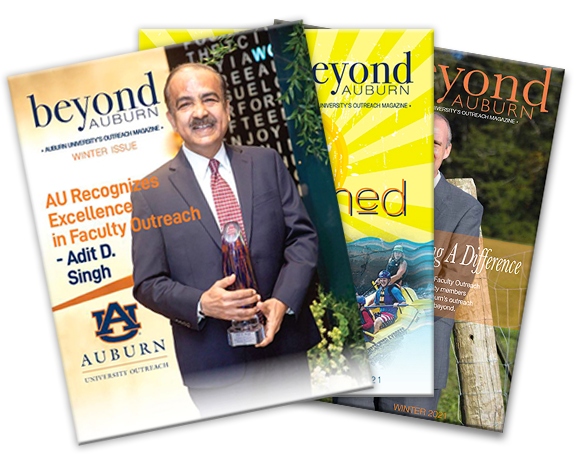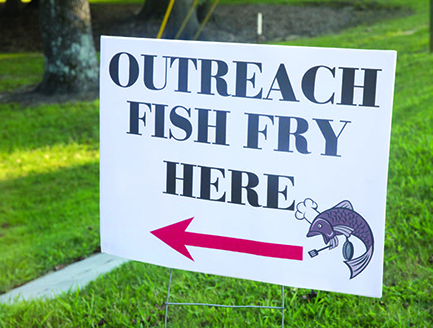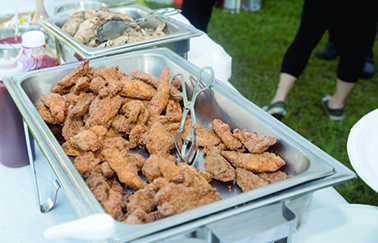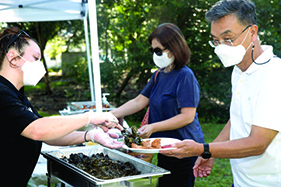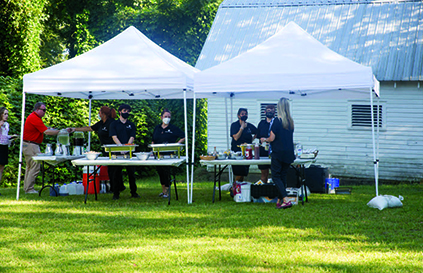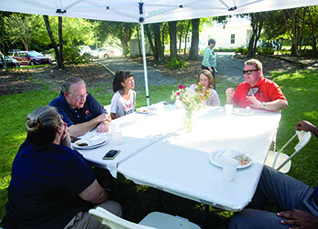Beyond Auburn Magazine
Winter 2022: AU Recognizes Excellence in Faculty Outreach - Adit D. Singh

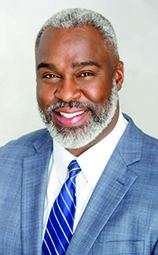
This fall, we completed the Auburn University Economic Impact Study for 2021. University Outreach has produced these impact reports since 1996, making it one of the longest running institutional studies at the university. Since the last report in 2019, Auburn’s overall economic contribution to the State of Alabama increased to $5.63 billion, significant especially because of the substantial economic downturn caused over the last year by the COVID-19 pandemic. This demonstrates that Auburn is a robust economic engine for the state through its research enterprise, renowned academic programs and outreach resources directly benefiting Alabamians. Faculty expertise is a significant factor driving this economic impact but more importantly, faculty engagement has a vital impact on individual lives and wellbeing in our communities.
Recognizing that faculty engagement and highlighting its profound impact is the purpose of the Auburn University Award for Excellence in Faculty Outreach, which the Office of the Vice President for University Outreach has conducted for more than thirty years. This award program honors the engagement of exemplary faculty members and demonstrates the tremendous impact Auburn’s outreach has on our community, state, nation and beyond. This year’s recipient is Adit Singh, the Godbold Endowed Professor in the Department of Electrical and Computer Engineering.
Singh’s outreach contributions in the area of advanced integrated circuits focus on innovative technical training and tutoring for thousands of practicing engineers throughout industry and with leading corporations around the globe.
His cutting-edge outreach provides important industrial workforce training that certainly benefits those engineers, but also touches us through the many electronic devices that we use and rely on every day. Thus, Singh’s engagement truly makes a difference to increasing global technical capacity and improving the economy for all. That is outreach on an inspiring level. Congratulations, Singh.
The engagement of Auburn’s dedicated staff is also a powerful component of impactful outreach that should be recognized and celebrated. Family, friends and university colleagues recently surprised me with a great honor, a new endowment established in my name to provide an annual award highlighting outreach work of both faculty and staff. I am moved by this honor and very appreciative of all those who worked to establish this endowment. I am especially gratified that we have another opportunity to promote Auburn’s mission of outreach, and that staff engagement as well as faculty may be recognized and supported for years to come by this award.
As you can see, the Auburn Family has a strong commitment to engage our communities and improve the quality of life for all. This is our outreach mission at work, and together, this is Auburn making a difference.
War Eagle and stay safe,
Royrickers Cook, Ph.D.
Vice President for University Outreach
and Associate Provost
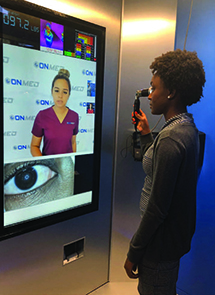
- convenient, affordable health care access
- brought to you by Auburn University, Chambers County Commission and the City of LaFayette
Services provided:
OnMed Telehealth Station- Convenient, affordable health care access
- Diagnosis, referral, prescriptions and treatment options
- Minimal fee per visit.
- Extension programs
- Medication management support
- Education for self-care of chronic conditions such as asthma, COPD, diabetes and hypertension
- Exercise and nutrition education programming
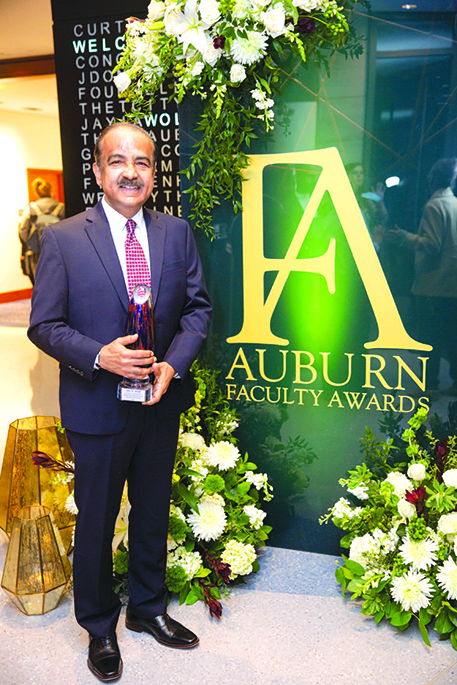
Adit D. Singh, the Godbold Endowed Chair Professor in the Samuel Ginn College of Engineering, is the 2021 recipient of the Auburn University Award for Excellence in Faculty Outreach.
A member of the Department of Electrical and Computer Engineering since 1991, Singh is lauded for his exceptional contributions in educating and training thousands of practicing engineers in cuttingedge technologies associated with the design and test of integrated circuits.
The Award for Excellence in Faculty Outreach honors the engagement of exemplary faculty members and demonstrates the tremendous impact outreach has on the community, state, nation and beyond. The winner is selected annually by a committee comprised of former winners and senior faculty.
“Adit Singh has an impressive record of outreach activities both nationally and internationally,” said Royrickers Cook, vice president for University Outreach at Auburn. “He is highly respected for his extensive training and tutorials conducted for industry and practicing engineers.”
Singh earned a bachelor’s degree in electrical engineering from the Indian Institute of Technology, Kanpur, and received his master’s and doctoral degrees in electrical engineering from Virginia Tech University.
After completing his studies, Singh served on the faculty at the University of Massachusetts, Amherst. He came to Auburn in 1991 as an associate professor, was promoted to professor in 1998, the James B. Davis Professor in 2002 and Godbold Endowed Chair Professor in 2020.
During his career, Singh has received numerous accolades including the Fulbright Award from the Fulbright Commission, the Meritorious Service Award from the Institute of Electrical and Electronics Engineers Computer Society, the Walker Merit Teaching Award from the Auburn University Ginn College of Engineering, the Distinguished National Lecture from the Chinese Academy of Sciences and the Life Fellow from the Institute of Electrical and Electronics Engineers.
Through extensive outreach work, Singh has exhibited his commitment to supporting practicing engineers. In the mid- 1980s he was among the early faculty to introduce the teaching of integrated circuit, or IC, chip design at American universities.
Working at UMass at the time, Singh was recruited to teach in-house short courses at the two largest computer companies at the time. The courses were so well received, Singh was regularly invited to teach at company locations throughout New England. When other companies across the country learned of Singh, he would teach for them as well.
Once at Auburn, Singh established a strong research program, supported largely by the National Science Foundation. But he didn’t want to give up working with practicing engineers. His research – on the testing of integrated circuits to screen out the subtle manufacturing defects that cause operational failures in electronic systems, more specifically the chips used in computers and cellphones – garnered industry attention, and Singh was once again invited to share his expertise.
“There are literally billions of components in a processor chip, which is no bigger than your thumb; billions of components, and if any one of them is faulty, the chip is bad,” said Singh. “The challenge is how do you make sure you test every one of those billion components.”
Over the past four decades, Singh has used his expertise to train engineers in IC design and testing. His initial efforts focused on updating practicing engineers on new subjects, but as the semiconductor technology changed, he presented advanced new research ideas that had significant commercial potential. Companies like IBM, Intel, National Semiconductor and Qualcomm have benefited from his tutorials and presentations. Additionally, thousands of engineers throughout Asia, Europe and the United States have attended Singh’s presentations.
The reach of his efforts is truly global, and his research and training reputation is such that he is the only expert who has been invited every year since 2005 to give half or full-day tutorials at the Institute of Electrical and Electronics Engineers’ International Test Conference. Established in the U.S. in 1971, the ITC draws more than 1,000 participants annually.
His many tutorials and trainings have lucidly explained the latest results from some of the most cutting-edge research advances in test technology to industry. These presentations have helped expedite the adoption of new test methodologies by industry. Thus, Singh’s extensive off-campus outreach activities have directly contributed to enhancing the productivity of IC manufacturing, and the economic and societal benefits that accrue from this key sector of the economy.
Regularly teaching advanced short courses to an audience of knowledgeable engineers from the leading IC design and manufacturing companies has greatly helped improve the quality and content of Singh’s presentations in campus courses. The details of cutting-edge industrial practice that he acquires through this extensive outreach to industry are rarely available in textbooks because of the rapid advancements in IC technology.
Even with all the speaking and training on his schedule, Singh continues to carry a full teaching load on campus, teaching more than 100 undergraduates and conducting two smaller graduate courses every year for the past 20 years. Whether he is speaking to industry professionals or a classroom of students, Singh knows he is making a difference.
“The most rewarding aspect of being a professor is access to young minds, to be around young people. You know, I’m aging, but when I’m in my universe of research students, I don’t feel old,” said Singh. “The other aspect of this career is seeing your work show up in products. It’s recognizing and understanding that your work does have influence and impact.”
“Professor Singh’s industrial outreach activities contribute to the national and international visibility of Auburn University and the Ginn College of Engineering,” said Stanley J. Reeves, professor and chair of the electrical and computer engineering executive committee. “This helps Auburn recruit outstanding students and faculty, which are the brick and mortar of a great university.”
Indeed, Singh’s research and commitment to training has enhanced the capabilities of thousands of practicing engineers subsequently improving industries and universities alike. His career is truly an example of excellence in faculty outreach which has made a significant impact on the quality of life of global citizens.
A colleague from the University of Bologna in Italy considers Singh to be “one of the most renowned and widely recognized experts in the field of integrated circuit testing. He is appreciated and respected, both for his outstanding technical expertise, as well as for his exceptional record of outreach and engagement with other test professionals, particularly those in industry.”
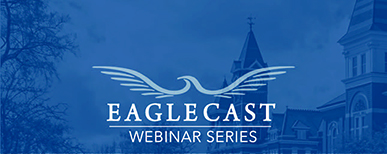
EagleCast, the monthly webinar series presented by the Office of Professional and Continuing Education, features experts from a variety of sectors including education, business, industry, public service and finance. The ongoing series, offered free of charge, is designed to meet the demand for information and skills essential for navigating today’s ever-changing world.
The series began in 2020 as an effort to digitally extend the university’s outreach strategies by providing high-quality virtual experiences through an interactive online platform. Consistent with OPCE’s mission to make the educational resources of Auburn University available to the public, the webinar’s expert speakers include leading Auburn University faculty, staff and partners.
The series has continued to grow its following by presenting informative sessions on a wide variety of timely topics including conflict management, networking, unconscious bias, mental health awareness, digital currencies, stock market volatility and mRNA vaccine technology. Each month, hundreds of attendees tune in from across the nation in 35 states and as far as Canada, Puerto Rico and the Virgin Islands.
Registration for the EagleCast Webinar Series is free and open to the public. To register for an upcoming webinar, or to view past webinars visit aub.ie/ opcewebinar.

Auburn University Outreach and the Schools of Nursing, Pharmacy, Social Work and Special Education, Rehabilitation and Counseling have partnered to provide fellowships to five Auburn University graduate students through the Albert Schweitzer Fellowship, or ASF, of Alabama. This significant honor is designed to engage students in experiences that will address health disparities across the state. Each fellow selected will complete an immersive 13-month personal and professional experience in their discipline alongside other fellows across the state.
While this is the first year Auburn has established a formal partnership with ASF, several Auburn University students have served as fellows since 2016, making a significant contribution to the health and wellness of communities across the state.
In 2020-21 Harley Moore, pharmacy major, created a marketing campaign to reduce the stigma associated with food insecurity on Auburn University’s Campus. As a result, 74 university students were provided with the opportunity to access the campus food pantry. Dr. Jeanna Sewell served as her faculty mentor.
In 2020-21, Emily Munn, Kinesiology major, developed an inclusive running program for third– fifth grade girls engaged with Girls on the Run in Lee County. As a result, 11 girls, including 2 girls with Down syndrome completed a 5K and gained impactful friendships, confidence and physical skills. Dr. Melissa Pangelinan was her faculty mentor.
In 2018-19 Adam Archer and Carl Okerberg, pharmacy majors, collaborated with the nursing office at Mercy Medical Clinic, a free and charitable primary health care clinic, to develop and implement a vaccination service for their patients. Their faculty mentors were Dr. Jeanna Sewell and Dr. Bernie Olin.
In 2016-17, Ayanda Chakawa, a clinical psychology major worked through the Macon County Ministers’ Council to provide parental support to strengthen the well-being of children aged 5-12 in eight faith-based communities.
Students who complete this experience become “Fellows for Life,” joining a national network of more than 4,000 Albert Schweitzer program alumni. These fellows proudly perpetuate the life work of physician-humanitarian and Nobel Peace Laureate Dr. Albert Schweitzer. Alabama fellows specifically focus upon empowering Alabama residents to live healthier lifestyles and improving the overall health and wellness of people across the state.
In addition to Auburn University, this statewide university collaborative includes Samford University, College of Health Sciences, UAB School of Dentistry, UAB School of Health Professions, UAB Heersink School of Medicine, UAB School of Nursing, UAB School of Optometry, UAB School of Public Health and the University of Montevallo.
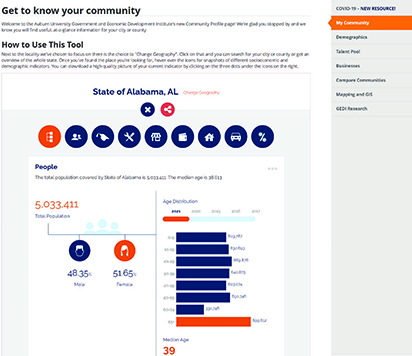
The Government and Economic Development Institute, or GEDI, offers a free online tool to provide communities useful, at-a-glance information for their cities or counties. The “Know Your Community” program runs on the GIS Planning platform, a tool widely used by economic development agencies across the country and features the most up-to-date data available and additional insights provided by professional geospatial analysts.
“Know Your Community” provides visually engaging infographics with summary information on every city and county in Alabama as well as highly detailed, geographically focused information on hundreds of topics. One of the best aspects of the tool is that users do not need to have experience with GIS software to use it since the platform is easy to navigate and user-friendly.
Economic developers, workforce development professionals, local officials, education professionals and nonprofit managers use “Know Your Community” to discover insights about their local workforce, infrastructure resources or just to get a feel for what their city or county has to offer. They can also use the comparison tool to find out how their city or county compares to other places. This feature is especially helpful when a municipality is trying to attract new businesses or projects to their area. It can also help them plan for future improvements in infrastructure and other critical services.
Access to “Know your Community” is complimentary and open to anyone through the GEDI website. Simply visit www.auburn.edu/gedi and click on the “Know your Community” tab to get started.
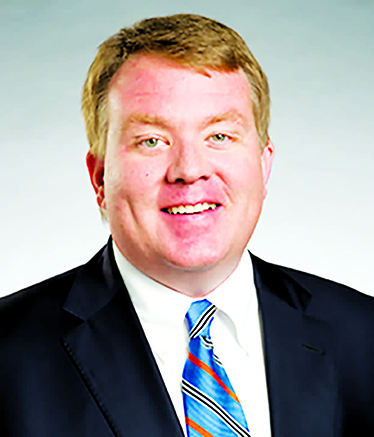
Jeremy Arthur, director of the Government and Economic Development Institute, or GEDI, at University Outreach, will conclude his two-year term as chairman of the National Board of Trustees of the Institute for Organization Management, U.S. Chamber of Commerce Foundation at the end of 2021. Arthur is the only member representing Alabama on this national board.
Arthur joined GEDI in February and has an extensive background working with Chambers of Commerce, most recently as serving as president and CEO of the Chamber of Commerce Association of Alabama. In his role as GEDI director, he continues to work with these organizations as well as economic development associations, municipalities, professional associations and more.
The Institute for Organization Management is the professional development program of the U.S. Chamber of Commerce Foundation. It is the premier nonprofit professional development program for association and chamber professionals, fostering individual growth through interactive learning and networking opportunities.
The U.S. Chamber of Commerce Foundation, or USCCF, is a 501 (c)(3) nonprofit affiliate of the U.S. Chamber of Commerce dedicated to strengthening America’s long-term competitiveness. The foundation educates the public on the conditions necessary for business and communities to thrive, how business positively impacts communities and emerging issues and creative solutions that will shape the future.
Arthur has served in various roles with the Institute for Organization Management, U.S. Chamber of Commerce Foundation over the years.
“I served as Class Advisor, then as a Board of Regent, then as Chair of the Board of Regents at the University of Georgia site, then as Chair of the National Curriculum Committee and now ultimately as Chair of the National Board of Trustees. I also teach classes as a faculty member and am a frequent blog contributor,” Arthur said.
For more information on the Institute for Organization Management, visit its website at https:// institute.uschamber.com/general-information/.
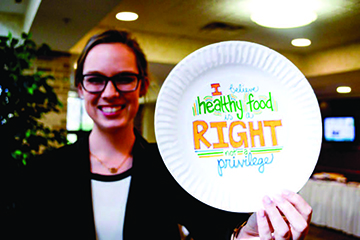
Alabama Campus Coalition for Basic Needs, or ACCBN, seeks to unify colleges and universities throughout Alabama to ensure students’ basic needs are met.
The Hunger Solutions Institute at Auburn University recently received a gift totaling $315,000 from the Ichigo Foundation in support of its Alabama Campus Coalition for Basic Needs, or ACCBN, food security initiative.
Three years of graduate student support, funded with $265,000, will lead 15 Alabama community colleges in launching and facilitating the food security initiative on their campuses. The University of Montevallo and the University of West Alabama, four-year universities which recently joined ACCBN, will also be supported with the additional $50,000.
“The Ichigo Foundation is honored to support ACCBN, the University of West Alabama and the University of Montevallo,” said Janel Callon, CEO and co-founder of the Ichigo Foundation. “As the coalition has identified, food insecurity forces far too many students to interrupt or end their studies. Alabama community colleges, the University of West Alabama and the University of Montevallo are taking action to protect and support their students, serving their needs and their futures.”
In addition, Callon said students will benefit not only because they are more food secure, but also because they know their universities care for them in the most fundamental way.
Campus food insecurityAccess to adequate nutrition can be a problem among college students. ACCBN strives to make college student food security a priority on college campuses and aims to cultivate a strong statewide network to help eliminate college student hunger. The food security initiative also supports strategies to ensure access to healthy, affordable foods so students can succeed in higher education.
ACCBN unifies higher education institutions to implement a systematic framework to improve healthy food access for all students. Members of the coalition, comprised of four-year Alabama universities, are Alabama A&M University, Alabama State University, Auburn University, Jacksonville State University, Troy University, Tuskegee University, University of Alabama, University of Alabama at Birmingham, University of North Alabama, University of South Alabama, University of Montevallo and University of West Alabama.
Bradley Fricks, director of academic affairs with the Alabama Community College System, or ACCS, said the system and its colleges are excited to join ACCBN’s network.
“In ACCS, we continually strive to focus on the student experience, and this is another great opportunity for us to meet students where they are to ensure their basic needs are being met,” Fricks said. “Ultimately, we all want our students to be successful in reaching their academic and career goals, and the partnership between ACCS and ACCBN will certainly help us achieve that mission.”
Through leadership of a basic needs coalition on each campus, the scope of food insecurity and available resources will be determined and will guide development of a campus-specific action plan.
“Food insecurity is a reality for many college students throughout our nation, including many students within our own state. The University of Montevallo is privileged to partner with the Hunger Solutions Institute and Auburn University to address and combat food insecurity by joining forces through the ACCBN campus food security initiative,” said Tammi Dahle, University of Montevallo vice president of enrollment and student affairs.
Data collected by ACCBN will shape best practices among Alabama universities and colleges in pursuit of hunger-free colleges and universities. With the help of Hunger Solutions Institute and Auburn University College of Human Sciences graduate research assistants, universities are evaluating their activities based on changes in food insecurity prevalence, campus resources and student outcomes.
“The Hunger Solutions Institute is committed to supporting organizations from all sectors, including education, in devising and scaling innovative, data-driven solutions to hunger in the U.S. and beyond,” said Alicia Powers, managing director of the Hunger Solutions Institute. “We are thrilled to receive additional funding to expand ACCBN to two-year colleges throughout Alabama.”
About ACCBNThe Hunger Solutions Institute’s first statewide initiative, End Child Hunger in Alabama, established ACCBN, facilitated by Auburn Associate Professor of Nutrition Onikia Brown. It seeks to unify colleges and universities throughout Alabama to ensure students’ basic needs are met, thereby empowering all students to succeed in school, earn degrees and open doors to opportunity
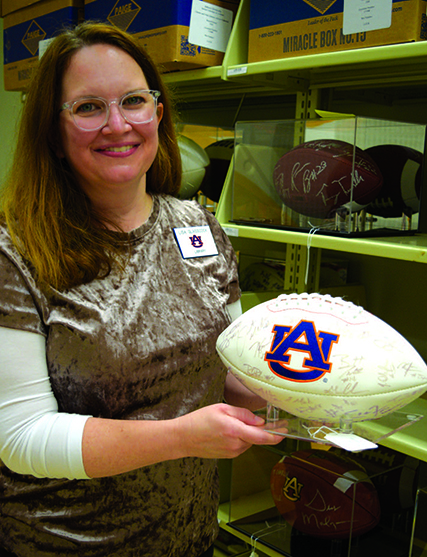
A cardboard cutout of Heisman Trophy winner Bo Jackson, player signed football helmets, national championship paraphernalia – none of these items in Auburn University Libraries’ inaugural exhibit for a new display space, on the first floor of Ralph Brown Draughon Library, are likely to make you immediately think about the Encyclopedia of Alabama. Nor would the exhibit of old menus from Alabama restaurants on display in Special Collections on the floor below. However, if you talk to Lisa Glasscock, who develops exhibits for Auburn University Libraries Special Collections, you will learn that the free, online resource was a significant tool in her work to create them.
For curators, the process of selecting items for an exhibit and developing captions for them includes learning about the people, events and places associated with them. There is a great deal of research behind a good exhibit. Glasscock notes that her work is made easier because she is based in a library at a Research I institution, but one of her go-to resources (which is available to anyone) is the Encyclopedia of Alabama, or EOA, which is hosted by University Outreach.
“Because a lot of our collections have Alabama ties, EOA is a great place to start when creating an exhibit,” said Glasscock. “I feel confident the articles will be accurate. They are written by people who understand how to research. And often they are written by someone whose name I recognize; someone I’ve worked with on some other project.”
Seeing familiar names listed as authors of an article—for instance the entry on Bo Jackson is written by Keith Hébert, a professor in Auburn’s Department of History—enhances Glasscock’s confidence in EOA’s credibility. She also appreciates that most articles include a list of additional resources that aid her research efforts. Additionally, EOA’s content itself may influence what items are placed in a display.
Glasscock’s research for the menus exhibit included reading EOA’s “Prohibition in Alabama” and “Barbecue, Alabama Style” entries. The barbecue article influenced her decision to place items representing Ollie’s Barbecue in Birmingham, which played a role in civil rights law, and Golden Rule BBQ in Irondale, which is one of the oldest restaurants in the state. In addition to including items that are visually appealing, the exhibit has artifacts from restaurants that are tied to Alabama’s history.
The quality and usefulness of EOA’s content benefits from the symbiotic nature of its partnerships with repositories like Auburn Libraries Special Collections. This is illustrated by the fact that after a remark about how one of Glasscock’s favorite EOA articles—the one on the popular band Auburn Knights—was devoid of images, she suggested a few photographs from the Auburn collection that could be used in the entry.
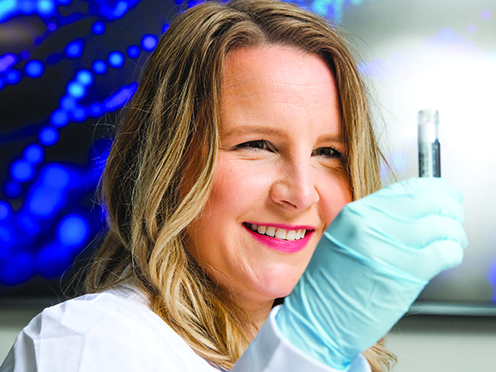
Many United States veterans are impacted by mental health challenges and finding the right combination of medications can play a significant role in improving their health and quality of life.
An Auburn University faculty member in the Harrison School of Pharmacy, or HSOP, is working with the United States Department of Veterans Affairs to evaluate how pharmacogenomics— how a person’s genome or genetic makeup influences his/ her response to medications—may improve medication selection and dosing for mental health disorders.
Partnering with the Tuscaloosa VA Medical Center and supported by a pilot grant from the UAB Center for Clinical and Translational Science, Courtney Watts Alexander, an assistant professor of clinical pharmacogenomics, is leading a team assessing how often pharmacogenomic evaluation identifies significant drug-gene interactions that, when addressed, may lead to improvements in medication selection and dosing for the treatment of depression, also called major depressive disorder or clinical depression.
“HSOP faculty and students are providing important outreach to veterans which increases patient access to pharmacogenomic testing and consultation services,” said Kimberly Braxton Lloyd, HSOP’s associate dean of clinical affairs and outreach. “By providing patient care through our telehealth technology, we have an opportunity to reach a large population of veterans throughout Alabama.”
Alexander, a 2013 Auburn pharmacy alumna, first encountered pharmacogenomics during an oncology residency at St. Jude Children’s Research Hospital in Memphis. She is now implementing this science through various programs at Auburn.
Braxton Lloyd said pharmacy faculty, staff and students have an established relationship with the Tuscaloosa VA, providing care to VA patients through the Auburn University Pharmaceutical Care Center’s Population Health Clinic, where telehealth technology is available.
“Through routine, remote patient interactions, we review patient’s medications, identify medication use problems, provide medication education, collect efficacy data and watch for adverse effects,” she said. “Our clinicians and students can order refills, schedule appointments, order labs, recommend vaccinations and document care in the medical record. The addition of a pharmacogenomics consulting service expands Auburn’s opportunity to improve patient care.”
“The interprofessional health care team at the VA values this collaboration and is excited about the improvements in medication use that may be realized,” added Alexander.
By learning more about how the patient metabolizes medications, the team can evaluate medication selection and dosing, which may indicate therapeutic failures before they occur. Patients receive a comprehensive report of how their pharmacogenomic results impact medications they may potentially receive in the future.
“Through participation in this project, pharmacy students and residents learn how to integrate pharmacogenomics, a relatively new area of medical science, into the medication care plan,” said Braxton Lloyd. “They are also learning how to provide remote care to patients through the use of technology. The importance of this mode of patient interaction was highlighted throughout the COVID-19 pandemic.”
The collaboration between Auburn and the VA allows Alexander and her team to make a significant impact on the veteran population in Alabama. This may develop into a unique care model for the treatment of major depressive disorder.
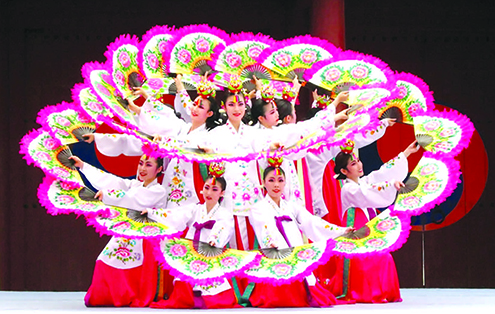
The Office of Outreach Global has developed a Global Community Day Festival to bring global experiences to Alabamians. The Global Community Day Festival is a day of bringing international and domestic communities together to learn and experience global culture, history, food, and related opportunities. Outreach Global office believes that uniting communities to experience diverse perspectives will enhance awareness and critical thinking about social issues such as cultural differences, customs, traditions, religion, politics and the world economy.
This event is intended to bridge the gap between domestic communities and internationals in Alabama and beyond. The overall objective of the festival is to strengthen collaborations and partnerships among diverse international and domestic citizens in our community to advance quality of life, socioeconomic engagement, diversity and inclusion, and community outreach.
The Festival is scheduled for April 2, 2022 in Auburn and a pre-event on April 1st, 2022 in City of Opelika. “The office is excited to be sponsoring the first of many Global Community Day Festivals in conjunctions with its main sponsors University Outreach, Cities of Auburn and Opelika, Jule Collins Smith Museum, Gogue Performing Arts Center, National Forum of Black Public Administrators (NFBPA) and the entire university community”— said Elizabeth I. Quansah, the creator of the premier festival.
We invite all to come and discover global arts and crafts, culture, fashion, games, music and trade fair plus “A taste of the World”. Become a Global Citizen! Contact Elizabeth I. Quansah, the Director of AU Outreach Global at: eid0001@auburn.edu, and telephone: 334-844- 5716. Food, trade vendors, interested groups, volunteers, and the general public can register at www.auburn. edu/outreach/global/ communityday.htm or auburn.edu/outreach/global
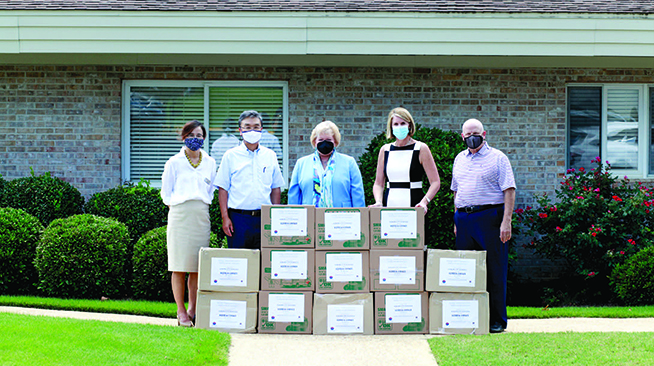
Since it was established in 2017, the Korea Corner has touched the lives of many members of the Auburn community and beyond.
In August the Korea Corner donated a total of 9,000 masks to be distributed across Auburn City Schools’ nine elementary schools. The masks were supplied by Auburn Merchandise Sangil Chung. The donation reflects the Korea Corner’s mission to promote active collaboration among its campus and community constituents.
Together with Auburn Youth Programs, the Korea Corner offers the Korean After-School program for third- through 12th-grade students. The after-school program, offered free of charge, teaches Korean language and culture and is designed to strengthen the connection between Korean and American culture and society. Now in its fourth year, the initiative is offered in five Auburn City Schools locations and online to students across the state of Alabama and beyond.
In November, the Korea Corner presented the Second Korean American Grassroots Conference, or KAGC, in Alabama. The largest nationwide network of Korean American voters, the KAGC is a nonpartisan, not-forprofit organization dedicated to uplift the voice of our community through active civic participation. Korea Corner, together with KAGC, presented an overview of the Korean American community, policy priorities of our community in Alabama and nationwide, ways and means to advocate for our community and the importance of civic engagement as Korean Americans.
“Korea Corner serves as an anchor for promoting cultural understandings between Koreans and non- Koreans to ultimately create a harmonious community climate by widening worldviews of all involved,” said Suhyun Suh, coordinator for Korea Corner.
Korea Corner provides educational and cultural resources to both Koreans and non-Koreans in Auburn and was founded with the help of the Consulate General of the Republic of Korea in Atlanta, the Office of the Vice President for University Outreach and the Office of Professional and Continuing Education. For more information on Korea Corner, visit http://aub.ie/ koreacorner.
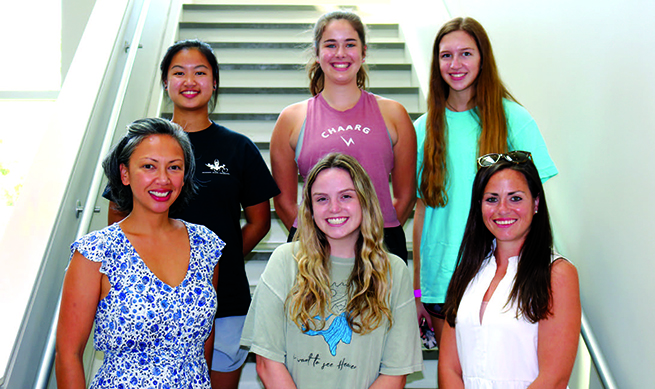
On Tiger Giving Day this year, School of Kinesiology Assistant Professor Melissa Pangelinan set out to raise $14,000 for the Pediatric Movement and Physical Activity Lab to develop and deliver adaptive physical activity programs for individuals with disabilities. That goal was far exceeded, with $16,689 raised in addition to an anonymous donor matching all funds raised up to $15,000.
The success of Tiger Giving Day led Pangelinan to a partnership with Scott Powell, director of the Alabama Head Injury Foundation, or AHIF.
“Our work with AHIF has really opened my eyes to the lack of on-going services and access to healthenhancing opportunities—for example, access to a gym, recreation program or fitness professional—faced by many people with a head injury,” Pangelinan explained.
Powell said that as his clients moved six months to a year from their injury, many, if not all, begin to lose insurance-provided therapy services. He said this is due to the medical reality that most recovery occurs in the first six-12 months following an injury. However, he said that’s not consistent with the reality that there is still progress and support that can be provided long-term.
“Our partnership with Dr. Pangelinan’s lab offered AHIF clients, who were multiple years removed from their injury—yet motivated to improve their activity, strength and endurance—a chance to learn exercises not just during their 20 sessions with Auburn, but also exercises that they could continue on their own even after the sessions were complete,” Powell said.
During the spring semester, four certified personal trainers, three trainees, master’s student Mary Grayson Nix and Pangelinan provided personal training two to three times per week for eight clients from AHIF—using virtual fitness instruction made possible through tablets, Wi-Fi, Zoom and exercise equipment that was provided to participants.
“Our clients ranged in age, time since their injury, degree of residual symptoms, socioeconomic status and race,” Pangelinan said. “Based on watching these sessions and creating advanced fitness plans throughout the semester, we saw a huge improvement in stamina, strength, balance and motivation to participate in exercise. We also contributed to the Bright Ideas Camp, an on-campus multiday program for clients and caretakers from AHIF this summer.”
The Bright Ideas Camp offered 15 AHIF traumatic brain injury, or TBI, survivors and their caregivers the opportunity to work with an interdisciplinary team of Pangelinan’s lab students to get a new “baseline” of where they are in their recovery. Survivors were then given an “at-home” action plan to assist on their road to recovery. In addition to exercise programming, the plan also included recommendations for stress reduction through a healthy lifestyle in partnership with Reita Clanton and Ford Dyke.
“My students gain knowledge from working with TBI survivors, but they also get to see firsthand the work that speech pathologists, occupational therapists, social workers, nutritionists, dietitians, nurses and rehab counselors do in working with this population,” Pangelinan said. “The three-day camp allowed the lab to do an initial assessment, sample and suggest some activities and exercises and then package it into a plan that could be continued once the individual returned home.”
The interaction between the trainers and AHIF’s participants solves another issue faced by TBI survivors: feelings of social isolation.
“Our population identifies social isolation as a primary complaint following their injury, but also took the COVID safety precautions very seriously due to the frequent presence of underlying health conditions accompanying their TBI,” Powell said. “Therefore, they cherished the opportunity to exercise and receive training while at home and also the opportunity to experience some socialization by getting to interact with their trainer.”
While the partnership with Pangelinan’s lab and AHIF was born out of a need to provide virtual exercise programs to individuals with disabilities, Powell hopes the team effort will continue in the future.
Pangelinan plans to leverage the resources available to her and her lab, including access to a big population of bright, motivated and service-oriented undergraduate and graduate students.
The opportunity to work with diverse and underserved populations provides these students a chance to develop criticalthinking skills, learn how to communicate and develop interpersonal skills and address real-world problems that are faced by community members with and without disabilities.
“Working with the clients with TBI has pushed me to use all of my training as a neuroscientist, adapted exercise specialist, researcher and teacher. Each client’s needs are so different and because we are running the programs virtually, I have to work hard to modify evidence-based practices and ensure safety during the program.”
To learn more about adaptive physical activity programs for individuals with disabilities and explore ways you can make a difference, contact the College of Education Office of Development at edugive@auburn. edu or 334-844-5792.
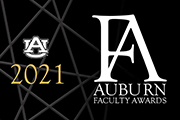
Each year, Auburn University Outreach is presented with nominees for the Excellence in Faculty Outreach Award. Based on the incredible collective accomplishments amongst this year’s nominees, the selection committee elected to recognize honorable mentions. Their accomplishments are noteworthy, and their heart for service is inspiring.
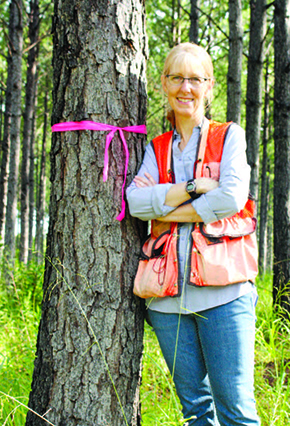
Barlow is the Harry Murphy Endowed Professor in the School of Forestry and Wildlife Sciences, team lead for Extension’s “Backyard to Back 40” project and founder of the ForestHER program, which focuses on connecting with and educating women landowners on natural resources management. Since the inaugural class in 2016, ForestHER has developed into a statewide initiative that connects with women through multiple in-person programs, podcasts, luncheons and a monthly webinar series. The program trains participants to read maps, measure timber, identify plant and wildlife species and generate income. The success of the ForestHER program in Alabama has been recognized by other states and used a model within these states to better connect with minority landowners.
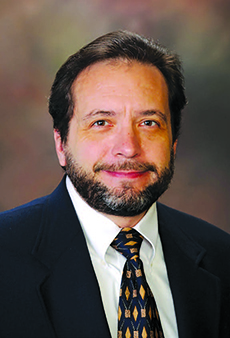
Barnett’s outreach efforts focus on water supply and wastewater systems in underserved communities both locally and globally. A former co-faculty advisor to Auburn’s Engineers Without Borders, he has led efforts to improve drinking water supply in Rwanda. Closer to home, he has worked with community groups as well as with state public health and environmental agencies to address unhealthy municipal wastewater discharge in Uniontown, Alabama. Along with colleagues at the University of South Alabama and the University of Alabama, Barnett is the recipient of an almost $5 million award from the U.S. Department of Agriculture to help create a regional rural wastewater consortium. He was also recently appointed to the Alabama Onsite Wastewater Board.
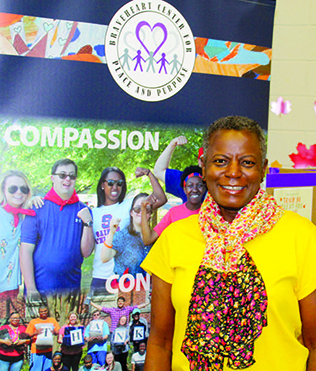
Burque’s outreach addresses an unattended/unmet community need and enhances the quality of life for children and young adults facing moderate to severe life challenges and their families by reducing isolation, cognitive and physical stagnation and assisting the community to become more inclusive for the vulnerable members of the citizenry. She is the founder of two BraveHeart programs. Expressions of a BraveHeart is a fine arts program for teens aged 11-21 with disabilities. It has served families from Auburn, Opelika, Valley, Smiths Station, Beauregard, Tuskegee, Montgomery and Columbus, Georgia. BraveHeart Center for Place and Purpose is an innovative health and wellness, community inclusion program for persons with disabilities facing moderate to severe life challenges, their families and community systems. For the past 10 years, Burque has maintained support for these programs from across Auburn’s campus, including art, kinesiology, special education and rehabilitation, Student Affairs, music and Outreach. She also has engaged numerous community partners, such as Alabama’s Department of Mental Health, East Alabama Mental Health, East Alabama Child Advocacy Center, Auburn City Library and Opelika Parks and Recreation, to operate these programs. Burque’s BraveHeart programs have received $180,000 in grant funding from the Alabama Council on Developmental Disabilities and $250,000 from family members, private supporters and small community grants. While other communities struggle to navigate diversity and difference to build communities that are genuinely inclusive, these two BraveHeart programs started by Burque reflect strategies and practices that impact that challenge.
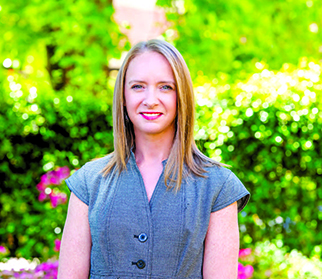
Powers has dedicated her entire career to the health and welfare of others. Prior to arriving at Auburn, she made substantial contributions to this mission by founding LiveWell Greenville, a non-profit focusing on healthy eating and active living for residents of Greenville, South Carolina. Since arriving on campus in 2016, Powers secured $535,000 in grant funding and established the Alabama Campus Coalition for Basic Needs. Additionally, she focuses on ending childhood hunger across Alabama by mobilizing numerous stakeholders to access resources and provide community information and feeding sites. In addition, Powers has been instrumental in growing the participation of university presidents in the Presidents United to Solve Hunger initiative.
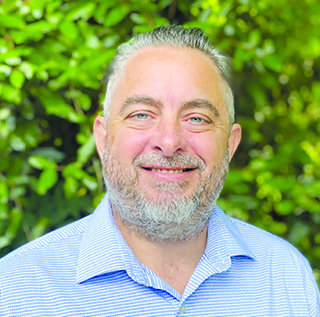
Forbes pursues research on the integration of biopsychosocial elements in human experience through his direction of O Grows, a community-university partnership with Opelika City Schools, the Food Bank of East Alabama, Keep Opelika Beautiful and Auburn University with a mission to develop a sustainable communitybased food system. O Grows provides university students meaningful practical learning through community-based engagement with the Opelika Community Garden and farmers market, experiential learning for grades 9-12 at a local alternative school, as well as assessment of physiological foundations of cognition.
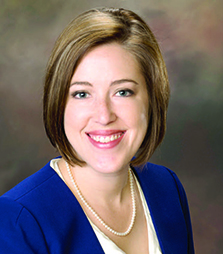
Mullinex’s contribution to the cattle industry is renowned across the state and region. Her outreach efforts focus on improved cattle forage and nutritional management strategies. As a focus of this effort, she assembled the Alabama Beef Systems Extension program, a science-based team focusing on enhancing the natural environment while ensuring that producers reach their full potential. Her work in this arena has had an estimated reach of 950,000 acres of land and 425,000 head of cattle in Alabama.
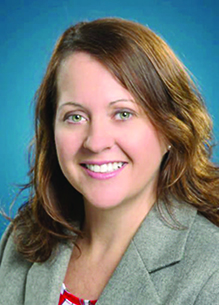
Gibson-Young’s focus in practice, service and research is on outreach with school-based and community-led interventions. Her concentration is pediatric centric, and she aims to make a difference in home management of child asthma. Gibson-Young has partnered with the community on coaching interventions aimed at family management of childhood asthma in the home setting, and has submitted multiple research proposals on this topic, with five previously funded. She has initiated a statewide asthma education initiative, providing educational sessions for nurses and social workers. Over 200 nurses have participated so far. Gibson-Young has presented outcomes of all outreach initiatives at national and international conferences. She has numerous publications in peer-reviewed journals that focus on her work with asthma, but also on the additional risks that children with asthma face as they navigate peer pressures and choices about risky behaviors that can worsen asthma control. Gibson-Young has demonstrated tremendous outreach leadership with undergraduate and graduate students in the outreach clinical, including Asthma Camp Eagle in Alex City, Alabama, TigerCHAT in Tallapoosa County and Pediatric Skills Day at the School of Nursing. Her engaged leadership is aligned in the Alabama Asthma Coalition, the Cover Alabama Coalition and the Association of Community Health Nursing Educators.
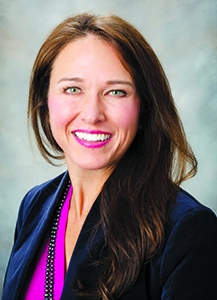
As a clinical pharmacy diabetes specialist, Whitley has practiced across the state, including family practices in rural Black Belt communities, federally qualified health centers and in a family residency program in Montgomery affiliated with Baptist Health System. She is also closely involved with the Southeastern Diabetes Education Services by supporting Camp Seale Harris as an on-site pharmacist. There she cares for children with type 1 diabetes at overnight camps while teaching pharmacy students on site. Whitley has presented nationally and internationally about her educational work on diabetes care for families and children living with type 1 diabetes.
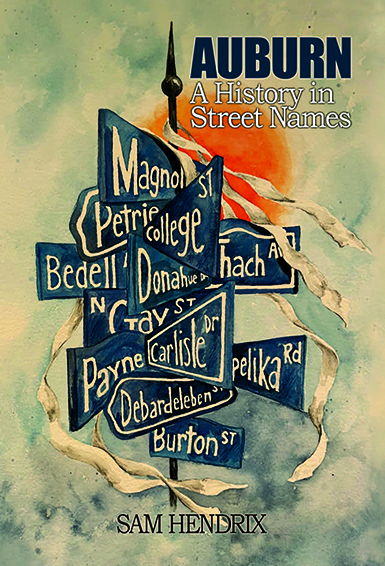
How did Auburn, Alabama, get its name, and why is it referred to as the loveliest village? A recently published book, Auburn: A History in Street Names, authored by Sam Hendrix, provides a comprehensive history of the City of Auburn and so much more. The book tells the stories of the Village and its people, street by street, act by act, over nearly two centuries.
By telling the history of Auburn, the volume creates future opportunities for today’s youth to tell stories of camp experiences. Proceeds from book sales will fund an endowment at Auburn University to provide academic camp scholarships for Auburn Youth Programs. The “camperships,” which cover costs of registration, oncampus lodging and meals, provide the opportunity for local youth to attend week-long academic summer camps at Auburn University.
“It’s important to me that youth in Auburn get to experience life on campus,” says Hendrix. “There are so many bright young people who live near the university or pass by it each day but don’t see attending college as a possibility. Academic camperships aim to change the dynamic for our underrepresented youth and lead these sharp, curious individuals to discover undreamt-of careers and carve new futures.”
The endowment is being made possible through a campaign by the Auburn Heritage Association, which raised more than $21,000 to fully cover the costs associated with the printing process. “With printing costs covered up front,” said Hendrix, “every penny will go to support academic camperships.”
Each year Auburn Youth Programs, offered through the Office of Professional and Continuing Education, or OPCE, serves thousands of youths who travel from around the globe to attend one or more of the 60-plus summer camps and programs offered on Auburn University’s campus. Academic camps are offered in partnership with schools and colleges across campus, including the College of Veterinary Medicine; College of Architecture, Design and Construction and the School of Architecture, Planning and Landscape Architecture; MRI Research Center; Harrison School of Pharmacy; School of Nursing; and the Department of Aviation. Programs are led by Auburn University professors and faculty members and provide campers the opportunity to explore potential majors. Auburn Youth Programs is proud to work with its campus partners to offer academic camps and programs, consistent with the mission of OPCE to make available the educational resources of Auburn University.
“We are beyond grateful for the generosity of Mr. and Mrs. Hendrix. The camperships will allow us to serve area youth who may not otherwise be able to attend our camps,” said Jim Franklin, OPCE assistant director for Auburn Youth Programs. “It’s great to see how the stories that tell the history of our city can impact the future of its youth.”
Auburn: A History in Street Names uniquely chronicles the city’s past as it tells hundreds of stories of its people and the events that unfolded on its very streets. From Academy Drive to Zellars Avenue, the 735-page hardback book includes 400 alphabetical street name entries and 65 stand-alone essays, along with photos and illustrations throughout. Its first printing, available this fall, is limited to 1,500 copies.
Books will be available for purchase for $30 each beginning in November at area events and online. For a schedule of events or to purchase online visit aub.ie/auburnstreetnames. Hendrix is an Arab, Alabama, native and graduate of Auburn University. He spent most of his career with Auburn University as a public relations and development professional. He also has authored a history of the Auburn Church of Christ and a biography of founding Veterinary Medicine Dean Dr. Charles Allen Cary before publishing Auburn: A History in Street Names. He resides with his wife, Mary Ellen, in Auburn.
Auburn Youth Programs, a program area within OPCE, is an extension of University Outreach that sponsors and executes a variety of summer programs designed to educate and inspire youth. To learn more about Auburn Youth Programs visit auburn.edu/ summercamps.

The Center for Educational Outreach and Engagement, or CEOE, is the sole-source provider of Culture Bump™ training for Alabama educators throughout the state. Culture Bump™ is a skill-based program that teaches how to use differences as a way to connect with others and guide them to do the same. The Culture Bump Approach™, with a unique 8-step process, was invented by Carol Archer over 40 years ago at the University of Houston. The program has been based at Auburn University, where Archer has served as consultant for over a decade.
The Culture Bump Approach™ is an engaging and interactive process that teaches transformation of “culture bumps” or differences, with others into authentic relationships. It includes a method that teaches negotiation of new insights into one’s own character or culture and leads to an exploration of why humans are different while affirming how we are the same.
“Culture Bump believes having bias is a human trait that will never go away, in fact, bias is necessary. It is our collection of biased thoughts that lead us to respond differently than one another,” said Archer.
Culture Bump-8 Steps to Common Ground, which is available on Amazon, states, “naming the experience as a ‘culture bump’ rather than an intentional, personal act reveals the possibility of something beyond culture, something that is more universal” (Archer and Nickson, 2019, p.11).
Culture Bump™ theory teaches we cannot escape the fact that our interactions in every arena are influenced by our individual responses to differences. Our positive, negative or neutral reactions reveal themselves in the conflicts and violence that result from decisions made in response to differences in politics, education, religion, socioeconomics, race, gender, nationality or ethnicity.
“When we think of common ground, we generally understand it to be mutual understanding, and we assume that this includes agreement… Culture Bump™ points out that common ground and commonalities do not imply acceptance or even agreement; they simply imply a mutually understood category in which the individuals can hold opposite points of view” (Archer and Nickson, 2019, pp. 82-83).
CEOE has been instrumental in providing seminars, workshops, conference presentations and individualized instruction to Alabama educators across the state. Through a partnership with Outreach’s Office of Professional and Continuing Education, or OPCE, Alabama educators and students have access to an online course that delivers Culture Bump™ strategies and resources virtually.

Over 300 Alabama State Department of Education, or ALSDE, teachers and administrators have completed the online Culture Bump™ course through Auburn University since 2020. In an effort to provide educators with skill-based training that promotes “finding common ground,” ALSDE selected Culture Bump™ as a primary resource to be used throughout the state.
“Upon completion of the course teachers are eligible to earn Continuing Education Units, or CEUs, and administrators can earn Professional Learning Units, or PLUs,” according to Telena Madison, ALSDE representative.
Alabama has over 1,541 public schools serving over 740,000 students. As a primary resource, Auburn University is in a position to have a far-reaching impact improving communication skills through education and bolstering the Alabama economy.
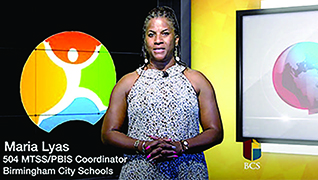
In the spring of 2020, the Center for Educational Outreach and Engagement, or CEOE, began training leaders from the Birmingham City Schools Positive Behavioral Interventions and Supports, or PBIS, as part of their School Climate Transformation Initiative Grant.
According to PBIS District Spokesperson Maria Lyas:“Culture Bump diffuses a reactionary mindset of actively displaying biases against another; Culture Bump teaches an individual to explore/understand differences through a process of being open-minded, communicative, honest and accepting. Simply stated... Culture Bump teaches individuals to become proactive and not reactive toward understanding differences among others.”
Birmingham City Schools 2020Birmingham City Schools, or BCS, educates 25,000 students across 42 public schools. BCS administrators’ and teachers’ intent is to enhance the culture of their school community by using Culture Bump as a positive behavioral support. Students throughout the district will be immersed in Culture Bump skills as a first resource to understand and solve differences.

In 2021, the Center for Educational Outreach and Engagement, or CEOE, provided training for 55 staff responsible for Head Start education at six locations in Alabama’s Black Belt.
“Auburn University’s Culture Bump training takes a different approach by helping our staff provide an educational environment that respects the values of every family whose child attends Head Start, by finding common ground even if we personally have an opposite point of view,” according to Felecia Lucky, president of the Black Belt Community Foundation, or BBCF, which administers Head Start.
The BBCF Head Start program educates over 300 children and their supporting families each year. Using Culture Bump as a primary communication resource allows pre-K students access to educational tools that will impact them throughout their school career.
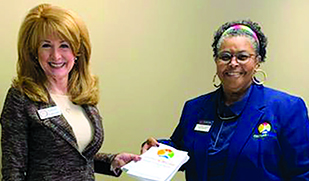
Trussville City Schools, or TCS, serving this suburb of east Birmingham has adopted Culture Bump training. As a top 10 school district in the state of Alabama, TCS enrolls almost 4,300 students in five schools. During the past year, TCS administrators and teachers have engaged in Culture Bump training. Ten Culture Bump “coaches” have been selected from their ranks to disseminate the training to teachers and students throughout the district. TCS’ proactive steps are intended to meet the needs of their student demographic while enhancing proficiency in cross-cultural communication.
“The first thing I hope my colleagues learned is the best way for them to open up and bring their students in where they can teach these life lessons and keep them from getting offended by things that are honestly innocent mistakes. I think that is going to be the biggest thing for us,” said Marcus Thompson, Hewitt-Trussville Middle School teacher.
Magnolia Elementary School counselor Lauren Blake believes, “This is important for our elementary age students to understand each other’s background, that even though we might look the same on the outside, what we experience throughout life is way different from each other...so just teaching students how to recognize these Culture Bumps and how to deal with the Culture Bumps, not just to ignore those Culture Bumps, but to deal with it and to grow as people by talking about different experiences and expectations.”
Culture Bump Approach™ tools and training can be accessed through the Auburn University Outreach-Center for Educational and Outreach Engagement. The Culture Bump™ online courses, virtual or hybrid trainings, are administered through University Outreach. The resource book “Culture Bump: 8 Steps to Common Ground” is available on Amazon.

The Auburn University Center for Educational Outreach and Engagement, or CEOE, has been awarded a $214,000 grant, renewable for 3 years, to partner with the Macon and Bullock County Career Technical Education Centers. The Workforce Innovation and Opportunity Act, or WIOA, grant was awarded by the Alabama Department of Commerce to allow Auburn University to provide supplemental programs as part of CEOE’s mission to enhance the development of K-12 schools in Alabama.
According to Stacey Nickson, CEOE director, “this is an incredible opportunity to bring K-12 programs we successfully implemented in the past to Macon and Bullock Career Technical Education Centers to support career development for local youth.”
Auburn faculty and consultants will deliver curriculum weekly at both school sites to include entrepreneurship, elocution and employability skills, global Culture Bump communication skills and financial literacy.
“We will also provide students with adult mentors via the Black Belt Community Foundation and counselor education seminars and services from Auburn faculty,” said CEOE grant coordinator Ryan Moss.
Principal of the Bullock County Career Center Marvin Lowe states one of their goals is to “encourage the students to continue their training through technical schools or universities to improve marketable skills that will enable them to be productive members of society.” Bullock County Career Tech currently offers JROTC levels I-IV, health science, business education, agriscience and welding.
Macon County Career Tech, led by principal Melvin Lowe III, also offers a wide range of programs. According to Lowe, Macon County offers agriscience, fire science, automotive services, health sciences, cooperative education, information technology and hospitality management. A direct partnership with Auburn University supports the goals of both career tech programs, and the WIOA grant will not only impact youth but the local economy as well.
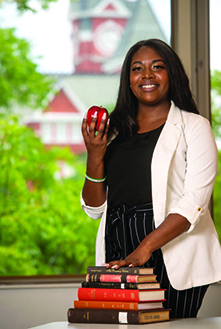
Young Professionals in Training, the brainstorm of Ja’Lia Taylor, a Special Education doctoral candidate in the College of Education and master’s student in the Raymond J. Harbert College of Business, recently formed the Young Professionals in Training, or YPIT, program at Auburn as a mentoring and tutoring program for students grades 5-12 from underrepresented populations near Auburn. The first session was held via zoom on Aug. 28, 2021.
The program, in partnership with the nonprofit community organization The Curtis House, focuses on college readiness and exposing students to majors and career paths here at the university. The participants of YPIT will gain access to Auburn First, Auburn’s dual enrollment program. Those who earn at least six credit hours and maintain a 3.0 GPA cumulative by Aug. 15 of their senior year of high school qualify for automatic admissions into the university.
The program is supported by several faculty, staff, students, alumni and community constituents who serve as mentors and tutors to the participants and meet with them once a month to build relationships and to discuss social and emotional health, community projects and other topics.
Those individuals crucial in the development of YPIT include president of the Curtis House Tamarcus Milner, faculty and staff members Joffery Gaymon, George Flowers, Cheryl Seals, Venus Hewing, Kimberly Mulligan-Guy, Adrienne Duke, Soledad Peresin, Jason Bryant, Alli Bracewell, Andrew McGill, Michele Cole, Wendy Franklin and Martina McGhee, who developed the curriculum for the students in the program. Students Jailin Sanders, Lane Jemison, Mya Strickland, Donielle Fagan, Elizabeth Devore, Oluchi Oyekwe and Shikia Carter and state Rep. Jeremy Gray were also integral in the development of the program.
Taylor started a similar program in her hometown of Smithville, Georgia. She references one her mentors, president Jay Gogue, with whom she says talks a lot about the power of the individual. In adhering to this concept, Taylor says, “I figured I could just jump out there and get it started since I had a similar model that I started back home. The difference is this program will also offer a pathway to Auburn University.” Taylor believes all students deserve a fair opportunity to improve their circumstances, no matter their socio-economic status.
The program will be housed in Auburn University Outreach Center for Educational Outreach and Engagement and Truman Pierce Institute. Contact Venus Hewing at vrh0003@auburn.edu and Jason Bryant at jcb0023@auburn.edu for questions about the program.
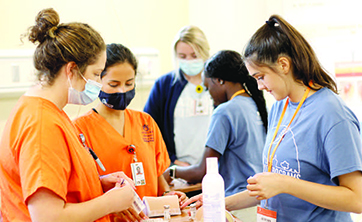
Each year Auburn Youth Programs, or AYP, a program area within the Office of Professional and Continuing Education, serves thousands of youths who travel from around the globe to attend one or more of the 60-plus summer camps and programs offered on Auburn University’s campus. Together with its university and community partners, AYP connects campers to campus by delivering a wide selection of summer programs. Each program offers the opportunity to explore future majors and careers, gain hands-on experience alongside Auburn University distinguished faculty and interact with specialized technology and university resources.
The high-demand vet camps offered in partnership with Auburn University College of Veterinary Medicine return to the traditional in-person format for 2022. During these week-long camps, middle and high school students interested in the veterinary medicine profession gain hands-on experience alongside university faculty, technicians and staff as they simulate surgical procedures inside a real operating room, engage in veterinary science topics and gain valuable career-related mentoring.
The architecture camp also returns to an in-person format. This intensive week-long workshop takes place in the studios of the Auburn University School of Architecture, Planning and Landscape Architecture, where students complete real architectural design projects, engaging and learning from the university’s highly qualified professors.
Campers can also enjoy the Auburn experience off the Plains. In Mobile, Alabama, the Industrial Design Workshop engages rising ninththrough 12th-grade students interested in a professional career in industrial design. Hosted by the College of Architecture, Design and Construction’s Industrial Design program, the week-long workshop offers an intensive design experience beginning with the identification of a design problem and rapidly progressing through idea generation, concept development and exploratory prototyping. Foundational skills such as sketching, rendering and prototyping are emphasized throughout the week as participants develop their solution to the issue at hand. Faculty, staff and student assistants from Auburn University’s Industrial Design program provide individual attention and guidance to each participant.
South of Mobile lies Dauphin Island, a barrier island just off the gulf coast of Alabama, and the site of Coastal Fisheries Camp. The intense five-day academic camp introduces high school students to the marine environment and is designed to teach a better understanding of the various fields in marine science. Participants spend a great deal of time in the field observing and working with plankton nets, seine nets, water sampling bottles, refractometers and water quality test kits and other equipment. They collect and identify marine species from various habitats and participate in lab and field discussions, all under the guidance of award winning marine and aquatic educators from Auburn University and Dauphin Island Sea Lab.
AYP will continue its virtual line-up of STEAMrelated camps including coding, game development, animation and robotics programming. Led by a live instructor with a background in computer science or game design, each program is powered by the camper’s innate imagination and designed to bring their ideas to life in a fun, hands-on learning environment. Students work in pairs or teams mirroring real-life experiences and the collaborative nature of the design process. Programs are offered to students ages 8-14 and include coding, game development, animation and robotics programming.
“Our programs offer participants the opportunity to further their education and skills while making new friends and experiencing life at Auburn University,” said Jim Franklin, OPCE assistant director for Auburn Youth Programs. AYP, offered through the Office of Professional and Continuing Education, or OPCE, is an extension of University Outreach that sponsors and executes a variety of summer programs designed to educate and inspire youth. AYP exists to promote educational and enjoyable summer programs to empower youth to find their passion, strengthen skills and shape their future.
Registration for summer 2022 opens Dec. 1. To learn more about Auburn Youth Programs, or to see the complete list of online camps and programs, visit www. auburn.edu/summercamps.
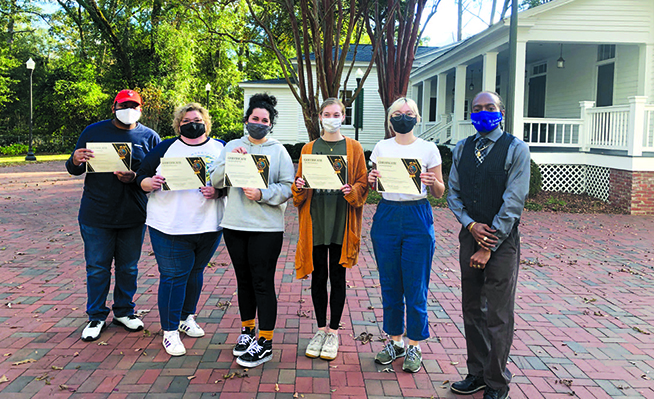
Auburn University is one of 17 institutions selected to participate in the Appalachian Regional Commission’s, or ARC, Appalachian Teaching Project, or ATP. ATP is an applied research training program during which students work with communities to address needs affecting longterm economic development. Participating students spend a semester developing projects to meet those needs, which they present at ARC’s annual ATP Symposium.
Auburn University’s project, Developing Leaders in Shorter, Alabama, was selected through a competitive application process. This fall, students will work with town of Shorter assistant community developer Dennis Powell and Auburn University visiting professor and civil rights icon Bernard LaFayette, Jr. to implement Kingian Nonviolence Conflict Reconciliation curriculum for leadership development in the afterschool program of D.C. Wolfe Elementary School.
“After spending most of my career focused on education in Appalachia, I can say that there isn’t anything quite like ARC’s Appalachian Teaching Project,” said ARC Federal Co-Chair Gayle Manchin. Manchin worked as an educator in Marion County Schools, served on the faculty of Fairmont State University and was the director of the university’s first Community Service-Learning Program. “I believe in leveraging the creativity, ingenuity and potential from within our region to enhance economic vitality. The ATP builds the next generation of leaders through handson, applicable work to help solve real problems in our communities.”
Auburn University’s project will join a body of student work that spans more than 20 years. In that time, ATP has helped at least 2,350 students from 29 Appalachian institutions respond to a wide range of issues including downtown revitalization, tourism development, cultural heritage, water quality, education, health and wellness, food insecurity, leadership development and the opioid crisis. These projects have resulted in lasting benefits, such as community kitchens and gardens, hiking and walking trails, community theater productions, public art installations, collections of oral history and historical artifacts, promotional materials, websites, training programs, local school programming, strategic plans and grant applications, and much more.
“For over a decade, Auburn University students have worked with partners in Macon County on community development projects through the Appalachian Teaching Project,” says Mark Wilson, director of the Caroline Marshall Draughon Center for the Arts & Humanities in the College of Liberal Arts at Auburn University. “We appreciate the ARC making this unique opportunity available to citizens in Macon County and students whose education and lives are enriched as a result.”
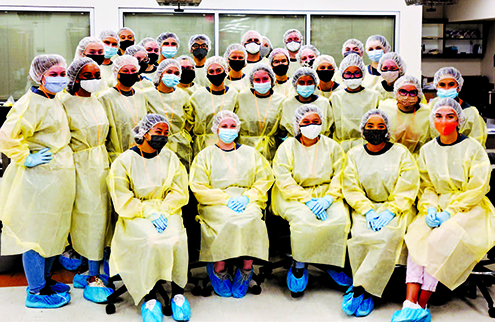
The Harrison School of Pharmacy, or HSOP, in partnership with Auburn Youth Programs, hosted its annual Pharmacy Camp in June.
The weeklong summer camp is designed for rising high school juniors and seniors, as well as rising college freshmen, who are interested in pharmacy. Campers explored the pharmacy profession through various learning experiences, including working side-by-side with current pharmacy students and interacting with pharmacists representing a variety of health care settings.
The skills lab provided campers with the opportunity to learn patient care skills, such as how to check blood pressures using stethoscopes and blood pressure cuffs, checking blood sugar levels and seeing how a variety of inhalers work.
The potential future pharmacists also had the opportunity to produce both sterile and non-sterile compounds, taking home several products each made in the lab.
A new experience for the 2021 camp was an in-depth look into pharmacy research projects. Students toured the 37,000-squarefoot Pharmacy Research Building, learning about current research being done by Auburn pharmacy faculty and graduate students.
The week’s activities were tied together in a progressive case in which students had daily discussions, following a patient from initial pharmacy visit through the health care system.
Auburn’s second- and third-year pharmacy students participated in the camp and served as group leaders. They were essential to the camp’s experience and provided hands-on guidance during activities, as well as offering valuable tips for success in high school and college.
The school’s goal is to familiarize students with the pharmacy profession and the many opportunities available in the field.
This year’s camp drew 19 students from six states, with more than half coming from Alabama.
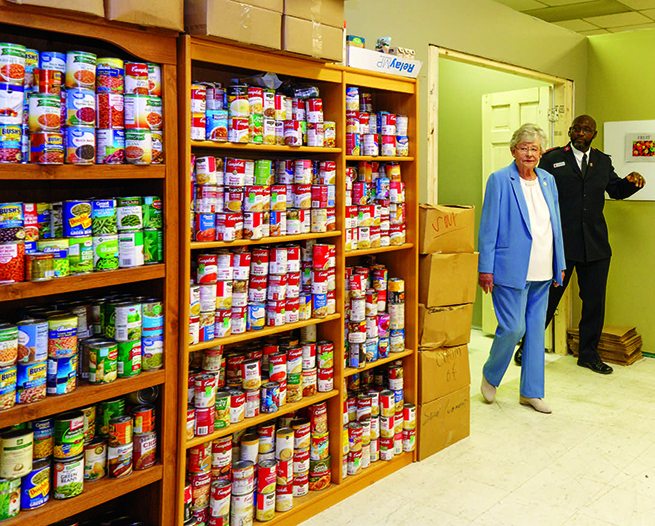
The growing impact of the COVID-19 pandemic on Alabama families has revealed a desperate need for consolidation of up-to-date information on available food resources into an accessible, web-based location.
The Hunger Solutions Institute in Auburn’s College of Human Sciences, in turn, developed the End Child Hunger in Alabama, or ECHA, County Food Guide to support the growing number of Alabama households facing food insecurity.
With the assistance of five institute team members, nearly 100 community volunteers and more than 2,500 hours of commitment, the food guide at aub.ie/foodguides now boasts a statewide database of nearly 7,000 food resources.
The National Food Access and COVID-19 Research Team—a group of researchers studying the impact of COVID-19 on food access, food security and food systems—reports the pandemic has created an increase in food insecurity from 25% to 38%.
The food guide provides information about food resources through an interactive map of Alabama counties, which are clickable to access the listings of food resources in each county. Statewide volunteers and community partners maintain and update the map on a regular basis.
Residents in every county have utilized the web-based map, with Lauderdale, St. Clair and Marengo counties accounting for the most page views. Since spring 2020, more than 10,000 people were reached on ECHA social media regarding the food guide.
The Hunger Solutions Institute started ECHA, its first initiative, in 2013 as a statewide effort to move Alabama into the top 25% nationally in child food security.
Food security is defined as having reliable access to a sufficient quantity of affordable, nutritious food. Food insecurity is not having that access. In Alabama, one in four children faces food insecurity, and one in four households is food insecure, meaning 17% of the population is not getting enough food.
In ECHA’s first five years, the rate of child food insecurity in Alabama dropped almost 4%, according to Alabama Possible, a statewide nonprofit organization that removes barriers to prosperity in Alabama through education, collaboration and advocacy.
The ECHA County Food Guide is an extension of the ECHA mission, especially under current circumstances that may hinder a family’s ability to find affordable and nutritious food. Since ECHA’s inception, Alabama Gov. Kay Ivey has been one of its strongest supporters. She continues to follow the work of Auburn’s Hunger Solutions Institute and the progress ECHA has made for Alabamians.
“The ongoing health crisis continues to take a toll on families in Alabama and around the globe. Sadly, the impacts of this virus are reaching our youngest citizens, and for some, this could mean worrying about their next meal,” Ivey said. “As a longtime advocate for End Child Hunger in Alabama, I am proud to see a new, comprehensive tool that will greatly aid those who need it most, especially during the evolving COVID-19 situation.”
Alicia Powers, Hunger Solutions Institute managing director, echoed Ivey’s advocacy to end child hunger. “ECHA partnering organizations diligently work to ensure every child in Alabama has access to nutritious foods,” Powers said. “In the case of COVID-19, access must include not only ensuring the physical presence of a food resource, but also informing the public of the most up-to-date operating procedures for food resources. The Hunger Solutions Institute is pleased to coordinate and maintain the ECHA County Food Guide supporting Alabamians as we all continue to navigate the impact of COVID-19.”
ECHA’s network now includes more than 50 key state leaders and has supported successes involving child nutrition programs, state legislation, public campaigns and many other initiatives.
The End Child Hunger in Alabama County Food Guide was one of seven programs recognized before Auburn home football games this season.
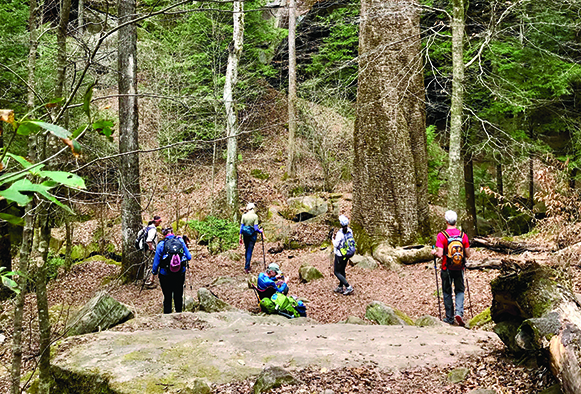
The Osher Lifelong Learning Institute, or OLLI, at Auburn University has for a long time included classes focused on conservation and environmental awareness. Since those classes are often extremely popular, OLLI’s fall 2021 curriculum offered nine related classes that gave members the opportunity to focus on Alabama’s natural environment. In addition, thanks to a grant from the F. Allen and Louise K. Turner Foundation, OLLI presented a series of nine public programs focusing on wilderness and wild places in Alabama.
The prime mover behind the special fall programs on wild places and wilderness in Alabama was Bill Deutsch, a member of OLLI’s volunteer curriculum committee who recognized that one of OLLI at Auburn’s strengths is the number of volunteer instructors with career-long accomplishments in the study and protection of our natural world. Deutsch is Research Fellow Emeritus in the Auburn School of Fisheries, Aquaculture and Aquatic Sciences and founder of Alabama Water Watch, which celebrates its 30th anniversary this year. Shortly after its establishment, Alabama Water Watch became the model for Global Water Watch with affiliates across the world. Deutsch’s work educating people to manage and protect water resources has taken him on over 100 trips to 20 countries.
“Building relationships around meaningful work protecting the planet’s precious water resources is my greatest accomplishment,” he said, and he continues to translate his talents as a scientist and educator by regularly teaching for OLLI.
He teaches classes on the rivers of Alabama as well as on the birds of our region. Always the lifelong learner, Deutsch taught a new class this fall called “Ancient Life in Alabama,” based on research he has done for his forthcoming book on the history of paleontology in the world and Alabama, highlighting the key people and fossils of Alabama that advanced understanding of Deep Time and life on Earth. Another longtime OLLI member and instructor, Carolyn Carr, leveraged her experience as an environmental economist and expert wildlands activist to present the class she taught this fall, “The Wild Places of Alabama,” which covered the history of designated Alabama lands and how they came to be protected through legislation and organizations. In her career, Carr organized wilderness campaigns in Arizona, New Mexico and Alabama. She was a lobbyist with the Sierra Club and worked on the passage of the Alaska Land Bill and the Clean Water Act. In her years with OLLI, she has taught classes on the history of the national park system, the evolution of the idea of wilderness and Southern environmental champions. Why does she teach for OLLI? It is an extension of her life’s work; she remains committed to “getting people out and interested in and working on environmental issues.”
OLLI volunteer instructors come from a variety of professions. Popular OLLI instructor and vice-chair of the OLLI Advisory Council Harold Bruner spent a majority of his career as a forester. In that role, he planted just over a million trees for clients in northern Indiana, an area not known for extensive forests. When Bruner moved to Auburn in June 2014, he immediately joined OLLI and found a way to share his love for trees, and nature in general, by offering hiking classes. The first was a weekly day-hiking class focusing on longer hikes of 4-7 miles. A second class was added for those who wanted to experience the joy of hiking but preferred shorter distances. That group takes weekly hikes of 2-3 miles, mostly at nearby Chewacla State Park. These classes keep OLLI members active and engaged with nature. In summary, Harold said, “The biodiversity of Alabama is amazing, and I enjoy sharing it with fellow OLLI members.”
In addition to participating in classes and programs on environment and conservation, OLLI members got their hands dirty by participating in cleanup work on the Bartram Trail in Tuskegee National Forest for National Public Lands Day on Sept. 25. Another OLLI group is helping orchestrate a project to irradicate invasive non-native plants and nurture the native plant ecology in Chewacla State Park.
OLLI offers three terms of weekly classes each academic year on topics ranging from the history of art to political histories; from public deliberation to 20th century opera; and from tree identification to birding. Classes are designed for senior adults who are interested in staying intellectually and socially engaged. OLLI is just one of the many Auburn University Outreach programs that enrich the lives of Alabamians. For more information about OLLI programs, membership and scholarships, or to learn about becoming a volunteer faculty member, call 334- 844-3102, email olli@auburn.edu or visit the website at www.auburn.edu/olli.
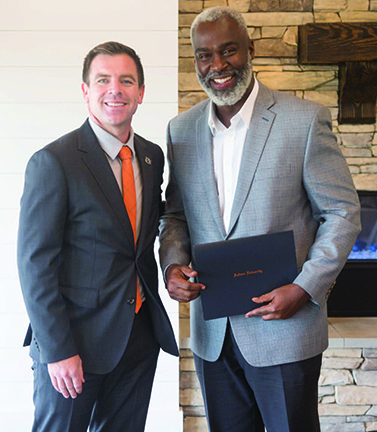
University colleagues, friends and family have unveiled a new endowment creating an outreach award for faculty and staff honoring Vice President for University Outreach and Associate Provost Royrickers Cook. Senior Vice President for Advancement John Morris presented a certificate to Cook at a recent ceremony, officially establishing the Dr. Royrickers Cook Endowed Engagement Award. “This award will carry the namesake of an individual whose passion is to make a difference in the lives of those around us, both near and around the world,” said Morris. “Dr. Cook’s leadership and commitment to improving our communities will inspire others for years to come.”
The ceremony featured presentations highlighting Cook’s two-decade career and accomplishments in the University Outreach division. The program, emceed by the Director of the Carolyn Marshall Draughon Center for the Arts and Humanities Mark Wilson, included reflections from Auburn University Provost Bill Hardgrave, retired Vice Provost from Clemson University and colleague Ralph Elliott, Assistant Vice President Emeritus for University Outreach and Public Service Ralph Foster and Royrickers Cook’s wife Catrina Cook, who represented the Cook family.
The new endowment, created from gifts received from more than 40 family members, friends and university colleagues, will support the new award that will be presented annually to an Auburn faculty or staff member who exemplifies ongoing and purposeful commitment to implementing outreach, as well as promotes positive civic and community engagement. The award honors Cook’s leadership and accomplishments as vice president for University Outreach at Auburn, his success in faculty and staff engagement and his position as an internationally known higher education leader and professional committed to advancing Auburn’s mission of outreach worldwide.
“Through his leadership of Auburn’s outreach programs, Dr. Cook continues to demonstrate the true impact of servant leadership to our campus community and beyond,” said Hardgrave. “This award represents Dr. Cook’s tireless efforts to ensure Auburn delivers on our mission to ensure the work of our university is benefiting the communities and citizens we serve.”
Cook, who holds three degrees from Auburn, culminating with a doctorate in public administration and public policy, has led University Outreach since 2006. In his role, Cook oversees the division’s eight program units and provides university-wide leadership for engagement initiatives, which advance the university’s outreach mission of applying its educational resources to help people in the state and across the globe.
“We’re so thankful to our family and friends who have made gifts to establish this award in my husband’s honor,” said Catrina Cook. “His dedication to Auburn University and the mission of University Outreach will continue to grow into a special legacy honoring Auburn University’s faculty and staff.”
The longtime Auburn administrator was moved by the honor.
“I am moved by this honor and very appreciative of all those who worked to establish this endowment,” said Cook. “It is both exciting and rewarding to see Auburn’s mission of outreach being the focus of the endowment and now knowing that our faculty and staff engagement will be recognized and supported for years to come by this award.”
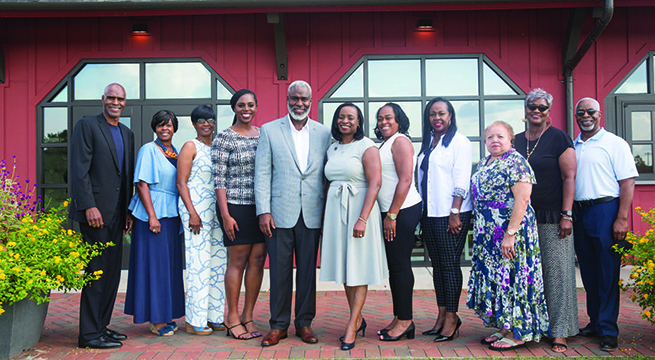

Auburn University Libraries, or AUL, successfully initiated and implemented an exciting and innovative outreach program to include students of Loachapoka, AL, and Lafayette, AL, high schools. The Creative Explorations in Technology and Design outreach program was organized and led by Madhumalini Nadar, AUL account department manager and Auburn University alumna, in collaboration with Venus Hewing, coordinator of outreach partnerships and initiatives at Auburn University Center for Educational Outreach and Engagement.
This program was designed for high school students to be exposed to and explore creative thinking and design principles, through interactive communication and activities, utilizing AUL cutting-edge technology at the AUL Innovation and Research commons unit. The students had the opportunity to create digital products using Adobe Spark, and learn 3D design techniques in TinkerCad with specialists Chelsy Hooper and Jonah Lasley. Students also received a guided tour of the AUL visiting the 3D printing Maker Studio and AR/VR areas, the Liquid Galaxy display, with AUL experts Chris Mixon, Gary Hawkins, Daffny Pierce, Margherita Ligorio and Jayson Hill. This AUL post-pandemic outreach program under the leadership of Dean Shali Zhang seeks to inspire and ignite young students’ interest to acquire visual communication skills and design thinking skills that will help them communicate effectively in a global world.
The Auburn University Libraries’ Discover Auburn Lecture Series brought speakers from across campus, the community and globe to present to the public on research covering all disciplines at Auburn since 2007.
History, literature, engineering, agriculture, wildlife, law, political science and astronomy are just some of the topics that have appeared in the series. Some of the bestloved lectures have been those on the history of Auburn itself, the people, places and events that have great meaning to the Auburn Family.
Speakers are asked to think of how they can present their topic to a general audience and how the topic relate to the history, mission and goals of Auburn. Lectures are recorded and placed online at the Auburn Digital Library at https://www.lib.auburn.edu/discoverauburn/
For its first 10 years, the lecture series was held in Special Collections and Archives of Auburn’s Ralph Brown Draughon Library. But when the Carolyn Marshall Draughon Auditorium was completed across the hall, a move was warranted. The space was designed to host gatherings and presentations and increased seating capacity for the lecture series; however, parking and access remained a problem for off-campus attendees.
Greg Schmidt, special collections librarian and organizer of the series, felt the frustration.
“Given the scarcity of parking around the library, we could not offer community attendees parking passes, which impacted our attendance,” he said. “I heard from many community members that parking was the main reason for not attending. The lectures are oriented toward a general audience, so finding new ways to include community members became a priority.”
When the COVID-19 pandemic struck, the Discover Auburn series, like teaching at Auburn, pivoted to remote instruction via Zoom. Speakers presented to a camera and microphone in an empty auditorium, and attendees logged in for the event. While speakers missed the opportunity for a live audience, AU Libraries found that Zoom attendees were watching the live lectures from not only across campus, but from across the state and nation, greatly increasing its outreach.
“Online lectures allowed us to reach beyond campus, beyond only in-person attendees,” noted Schmidt. “When we had over 100 Zoom attendees for a lecture during the pandemic, I recognized that we had an opportunity to extend our reach beyond the walls of the library.”
As in-person classes resumed at Auburn and lecture halls reopened to events, AU Libraries pivoted once again to allow for both in-person and remote attendees in a hybrid attendance model. By offering lectures to an in-person and a virtual audience, the lively question and answer periods following each presentation could also include those watching from afar.
As before the pandemic, the Discover Auburn Lecture Series holds four to five events per semester with a goal of giving attendees a snapshot of research at Auburn, research about Auburn and research of interest to the Auburn Family. The hybrid fall 2021 series has been enormously successful and Schmidt is hopeful that upcoming lectures will continue to have healthy in-person and remote attendance.
Recorded Discover Auburn lectures and upcoming lecture announcements may be found at: https://www. lib.auburn.edu/discoverauburn/.
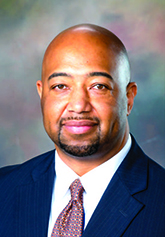
University Outreach welcomes Bernard Hill as the outreach coordinator of Community and Corporate Relations.
In this role, Hill will forge and strengthen external partnerships with University Outreach. Hill brings a wealth of experience and enthusiasm to this position based on his previous roles as the chief student development and retention officer at Point University and through his service as senior associate athletics director at Auburn University for 12 years. Hill oversaw the Auburn Football Letterman Club, or AFLC, the A Club (former student-athlete organization), AUBURNYOU – which works to promote studentathlete experience initiatives and create a permanent gateway for former student-athletes to remain connected to the athletics department and he served as the sport administrator for 10 of the 21 sports sponsored at Auburn University.
Hill graduated from Auburn University with his Bachelor of Science in Health and Exercise Promotion in 1997, Master of Education in Higher Education Administration in 2000 and his doctorate in Higher Education Administration in 2015. Hill is a member of several academic honor societies, graduate of the Division 1A Athletic Directors’ Institute, graduate of the NCAA Pathway Program, served as an outside reader on multiple dissertation committees and coauthor of research: “Cost Control: The Challenge for Intercollegiate Athletics.”
Hill was a member of the Auburn University football team in the early 90s and served as a high school football coach where several of his former players received scholarships to attend institutions in the Southeastern Conference. Hill is married to Sherina Hill from Bremen, Georgia and they reside in Auburn with their two small children, Kylie, 11, and Christian, 10.
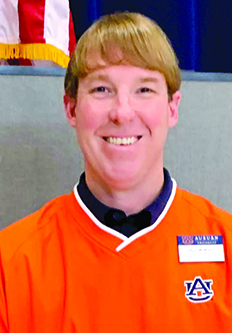
The Center for Educational Outreach and Engagement, or CEOE, welcomed two new staff members this summer.
Ryan Moss is the new CEOE grant coordinator. Moss currently supervises the Workforce Innovation and Opportunity Act, or WIOA, grant in partnership with Macon and Bullock County schools’ career technical education programs. Moss’ 20-year career in PreK-12 education includes serving as a coach (swimming, tennis, football and basketball), teacher, career center coordinator, assistant principal and principal (elementary, middle and high school). Moss is a two-time alumnus of Auburn University earning a Bachelor of Science in education in 2000 and a Master of Education in 2002.
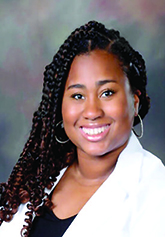
The Center for Educational Outreach and Engagement, or CEOE, welcomed two new staff members this summer.
Ashia Wordlaw is a graduate assistant for the WIOA grant. Ashia is the 24 year-old daughter of Randy and Sharma Wordlaw of Stevenson, Alabama. She is currently a third year pharmacy student at the Harrison School of Pharmacy, or HSOP, at Auburn University where she will receive her Doctor of Pharmacy degree in 2023. She plans on becoming a clinical pharmacist specializing in cardiology after graduation. She received a Bachelor of Science in Biomedical Sciences in 2019 from Auburn. Ashia serves as a case manager for the students enrolled through the WIOA program. As such, she will advise students seeking certification in medical careers with the intent of serving their local rural population as well as serving as an ambassador for the HSOP
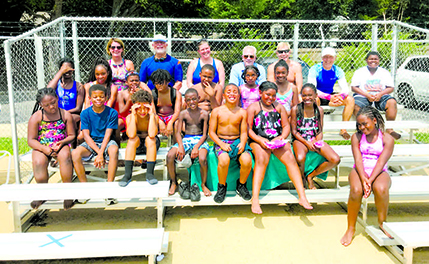
The Boys & Girls Clubs of Greater Lee County partnered with the Auburn Masters Swim Club, the City of Auburn’s Parks and Recreation Department, Auburn University and Dick’s Sporting Goods to offer swim lessons to summer camp participants, ages 6-11, for several weeks this summer.
Camp counselors who accompanied the children at Samford Pool said that the Swim Instruction to Reduce Risk Fast, or SIRRF, program is the one that the children looked forward to the most.
“Safety is our highest priority at the Boys & Girls Clubs of Greater Lee County and water safety is of great importance, especially during the summer,” said Latoya Dill-Johnson, director of club experience. “We were very excited to be able to join this partnership to bring swimming lessons to over 40 of our students this summer.
“All of them learned water safety and really improved on their swimming abilities. Many of them have been able to pass swim tests, show off their diving abilities and just be comfortable in the water. This program started this summer, and we hope to be able to continue it in the future to bring water safety skills to more students.”
Instructors from the Auburn Masters Swim Club were Katherine Weathers, Conner Bailey, Jim McDonald, Sara Wolf, Joe Brown, Bill Boldt, Emily Munn and Tom Williams.
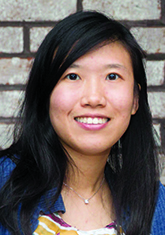
Vicky, as she is known by her chosen nickname, is returning to her home in Taiwan after 8 years at Auburn. First arriving at Auburn for ESL courses, Vicky went on to complete her Master’s degree in Computer Science and Software Engineering at the university while serving as an assistant in the Office of the Vice President for University Outreach. She was appointed to a full time position as an IT specialist in October 2019.
“Vicky has made a tremendous contribution to the University Outreach team and will be greatly missed,” said Vice President Royrickers Cook. “In addition to her professionalism and effectiveness in her job, she has contributed her positive, friendly spirit to all our activities, uplifting everyone who has worked with her.” On behalf of the University Outreach family, thank you Vicky for a job well done, and farewell as you travel home.
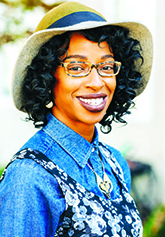
Whitney Lee joined the Office of Public Service in November of 2021 as the Outreach Programs Administrator. In this role, she will provide administrative support to ensure key tasks and initiatives are accomplished quickly, efficiently, and effectively. She will also work with Circle K International and Campus Kitchen at Auburn. Lee Previously served in the Office of Inclusion and Diversity and Office of Gift Planning. Whitney is dedicated to serving others in the community, from mentoring high school students to providing resources to families in need.
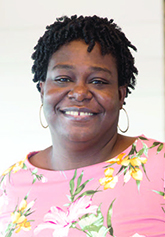
Amanda Carr joined the staff of University Outreach In August to serve as the executive assistant. Her position assists the Vice President in overseeing the budgetary, financial, purchasing, human resources, facilities, and other management areas, as well as related policy compliance for the division, its reporting units, and initiatives. The position serves as the primary liaison with the university’s central budgetary, finance, human resources, and other offices related to the business administration of the division. Prior to joining Outreach, Carr worked in the Office of Inclusion and Diversity for fifteen years and in Human Resources four years. A native of Notasulga, AL, Carr earned a Bachelor of Science degree in Interdisciplinary University Studies with an emphasis in Adult Education, Communication and Office Systems Management from Auburn University.
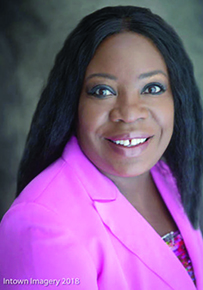
University Outreach’s assistant director for Service- Learning and Student Engagement, Joyce Thomas-Vinson retired from Auburn University effective December 31 after serving more than 27 years on campus in outreach and student engagement.
An Opelika native, Thomas-Vinson received her BA in English from the University of Alabama, also working in the campus’ residential life department. She came to work at Auburn in 1994 as a program developer in the Outreach Program Office. In 1998, Thomas-Vinson joined AU’s Project Uplift as a support services coordinator for programs and volunteer supervision engaged in the university’s collaboration with the Lee County Youth Development Center. In 2008, she rejoined the University Outreach staff to launch the new Office of Public Service and base of community partnership and student engagement programs including AuburnServes, Beyond Auburn magazine, and the nationally recognized Campus Kitchen at Auburn University. The Office of Student Affairs presented Thomas- Vinson with the Corey M. Edwards Advisor of the Year Award in 2020 for her work with Campus Kitchens.
In addition to her significant achievements at Auburn, Thomas- Vinson has served as an adjunct English instructor for twenty years at Southern Union State Community College and is a published author of “Conversations with The Father” a volume of inspirational essays focused on personal engagement and spiritual fulfilment.
“Known throughout Auburn University and the community as an outstanding outreach leader and public servant, Joyce has inspired thousands of faculty, staff, students and citizens to improve the quality of life for those in need through impactful service,” said Hollie Cost, assistant vice president for University Outreach and Public Service. Joyce and her husband Edgar Vinson, their son Jared, and daughter Adriel, will continue to reside in the east Alabama area.
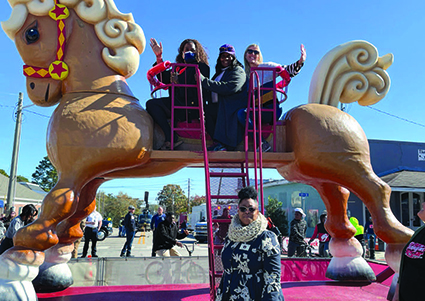
Chippewa Thomas, Cheryl Seals, Joan Thomas and Hollie Cost, along with LaFayette Fire Chief Jim Doody enjoyed spending time at the LaFayette Rockingfest to engage with the community about the upcoming community health and wellness center which will include a selfcontained OnMed® telehealth station.

Earlier this summer, when I left the community I had served for decades as a professor and later as mayor to join the Auburn Family as the assistant vice president of University Outreach and Public Service, my world took a tremendous turn.
As an educator and elected official in Montevallo, Alabama, I participated in powerful partnerships that literally transformed the city’s physical and civic infrastructure. In addition to completely revitalizing our downtown streetscape, paving every street in town, building a new city hall and developing youth athletic fields, we formed a junior city council, established a sister-city relationship in Japan, engaged our Hispanic community, passed a nondiscrimination ordinance that protected the rights of our LGBTQ community and installed a historic marker acknowledging the atrocious history of lynchings across from our former city hall.
While it was incredibly difficult to leave a community where I invested so much of my heart and soul, I felt called to engage with and support a broader scope of the state and beyond. After only a few short months, I have quickly realized Auburn University’s capacity to shift the tides of equity throughout the state of Alabama. Most notably, since arriving on campus, I have had the privilege of forging partnerships with pharmacy, nursing, Extension and other academic units, as well as Chambers County and the City of LaFayette to develop a rural health project that will significantly increase health care access in Chambers County. The intention of the pilot project is to replicate the model and increase rural health care access across the state.
In this same spirit, I have been invited to engage in the Alabama Prison Arts + Education Project and to participate in discussions to secure governmental identification for individuals impacted by the justice system. Over the past few months, Outreach has formalized partnerships with the Cary Center for the Advancement of Philanthropy and Nonprofit Studies and the Alabama Cooperative Extension System and secured multiple partnerships with local school systems for college and career access initiatives.
We are working with a collective of other universities across the state, through Alabama’s Postsecondary Alliance for Community Engagement, or PACE, to address issues of racial and political polarization. We are establishing Albert Schweitzer Fellowships in pharmacy, nursing, counseling, and social work and engaging university students as Outreach Ambassadors.
In summary, I am struck by what is already in place and motivated to move the needle further and faster through focused partnerships. I deeply appreciate the opportunity to serve in this critical role. As AVP of Outreach, I invite others to join us because it truly is all about collective impact!
Hollie C. Cost Assistant Vice President of University Outreach and Public Service
Last Updated: February 7, 2022

